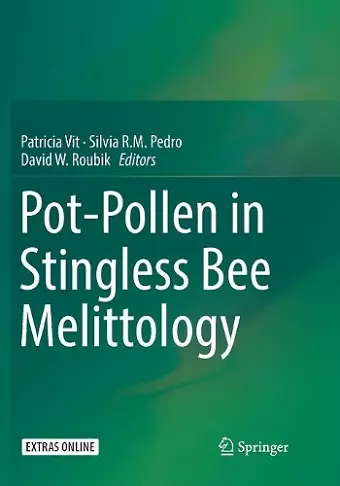Pot-Pollen in Stingless Bee Melittology
Patricia Vit editor Silvia RM Pedro editor David W Roubik editor
Format:Paperback
Publisher:Springer Nature Switzerland AG
Published:15th Jan '19
Currently unavailable, and unfortunately no date known when it will be back

This book covers pot-pollen—the other product, besides honey, stored in cerumen pots by Meliponini. Critical assessment is given of stingless bee and pot-pollen biodiversity in the Americas, Africa, Asia and Oceania. Topics addressed include historical biogeography, cultural knowledge, bee foraging behavior, pollination, ecological interactions, health applications, microbiology, the natural history of bee nests, and chemical, bioactive and individual plant components in stored pollen. Pot-pollen maintains the livelihoods of stingless bees and provides many interesting biological products that are just now beginning to be understood. The Meliponini have developed particular nesting biologies, uses of building materials, and an architecture for pollen storage. Environmental windows provide optimal temperature and availability of pollen sources for success in plant pollination and pollen storage. Palynological composition and pollen taxonomy are used to assess stingless honey bee pollination services. Pollen processing with microorganisms in the nest modifies chemical composition and bioactivity, and confers nutraceutical benefits to the honey and pollen widely relished by native people. Humans have always used stingless bees. Yet, sustainable meliponiculture (stingless bee-keeping) projects have so far lacked a treatise on pot-pollen, which experts provide in this transdisciplinary, groundbreaking volume.
“This book with contributions from scientists and experts studying stingless bees and meliponiculture gives an insight into pot-pollen which supports the stingless bees, and its many interesting biological characteristics that are only now beginning to be understood by scientists.” (Bees for Development Journal, Issue 130, March, 2019)
ISBN: 9783030096670
Dimensions: unknown
Weight: 957g
481 pages
Softcover reprint of the original 1st ed. 2018